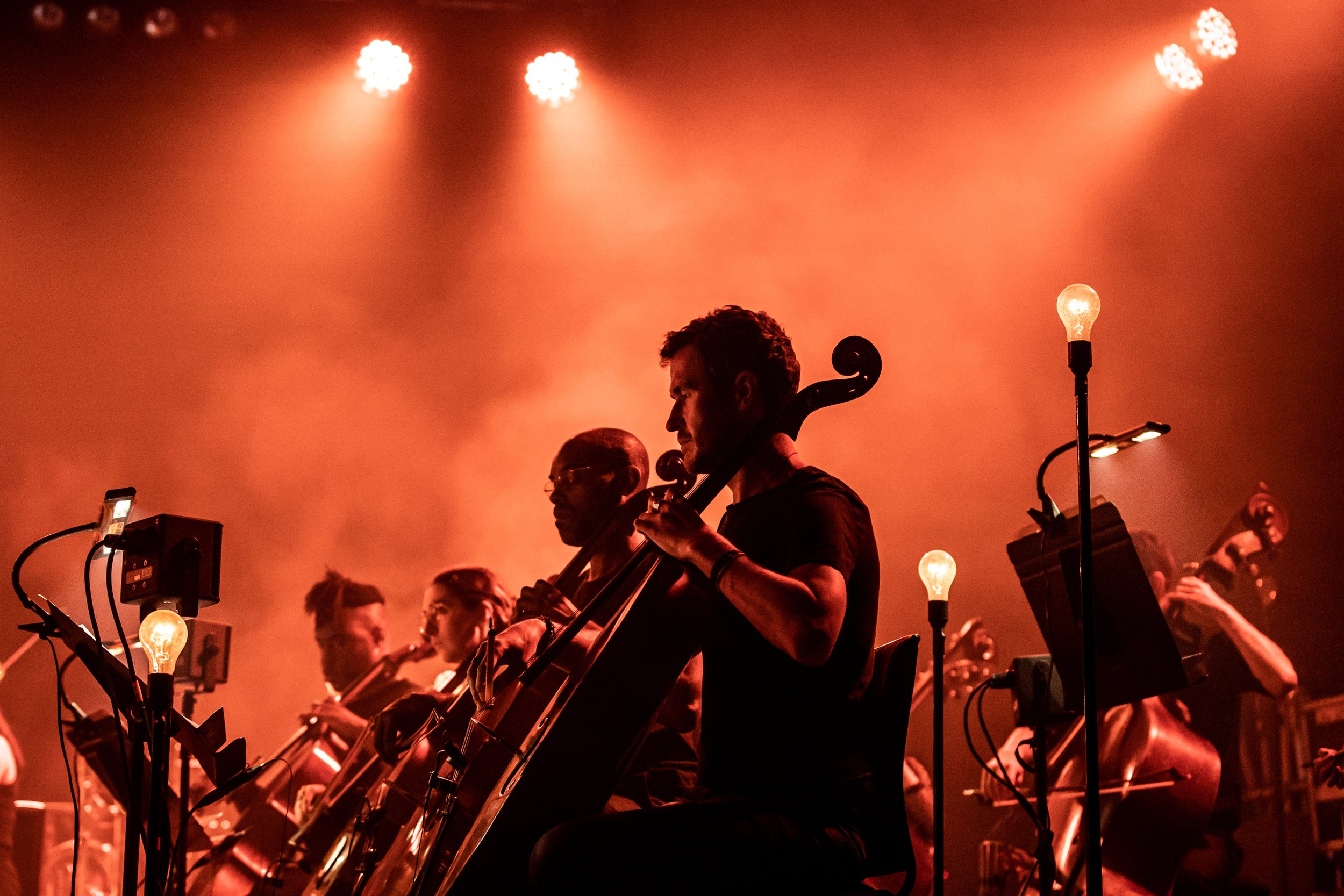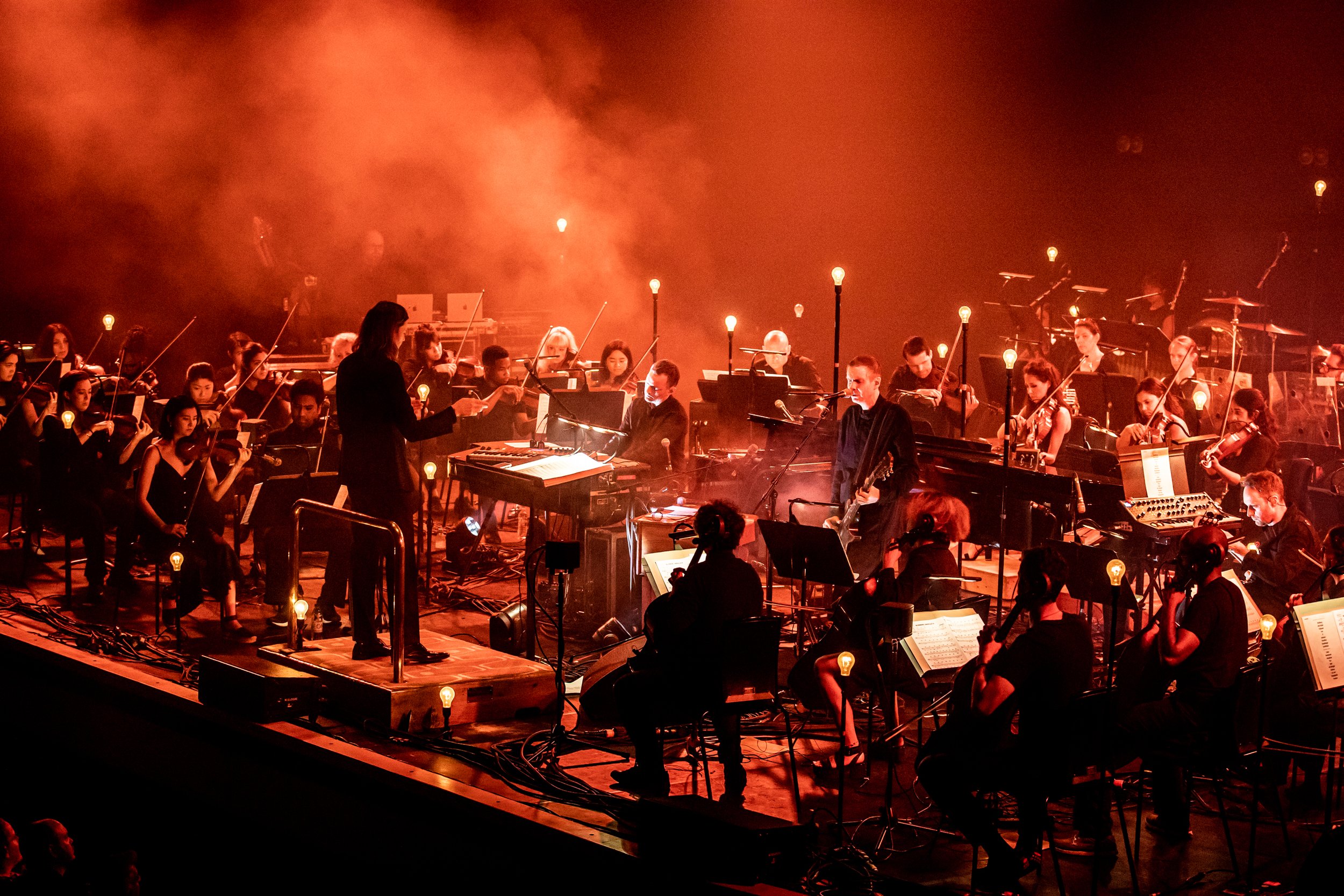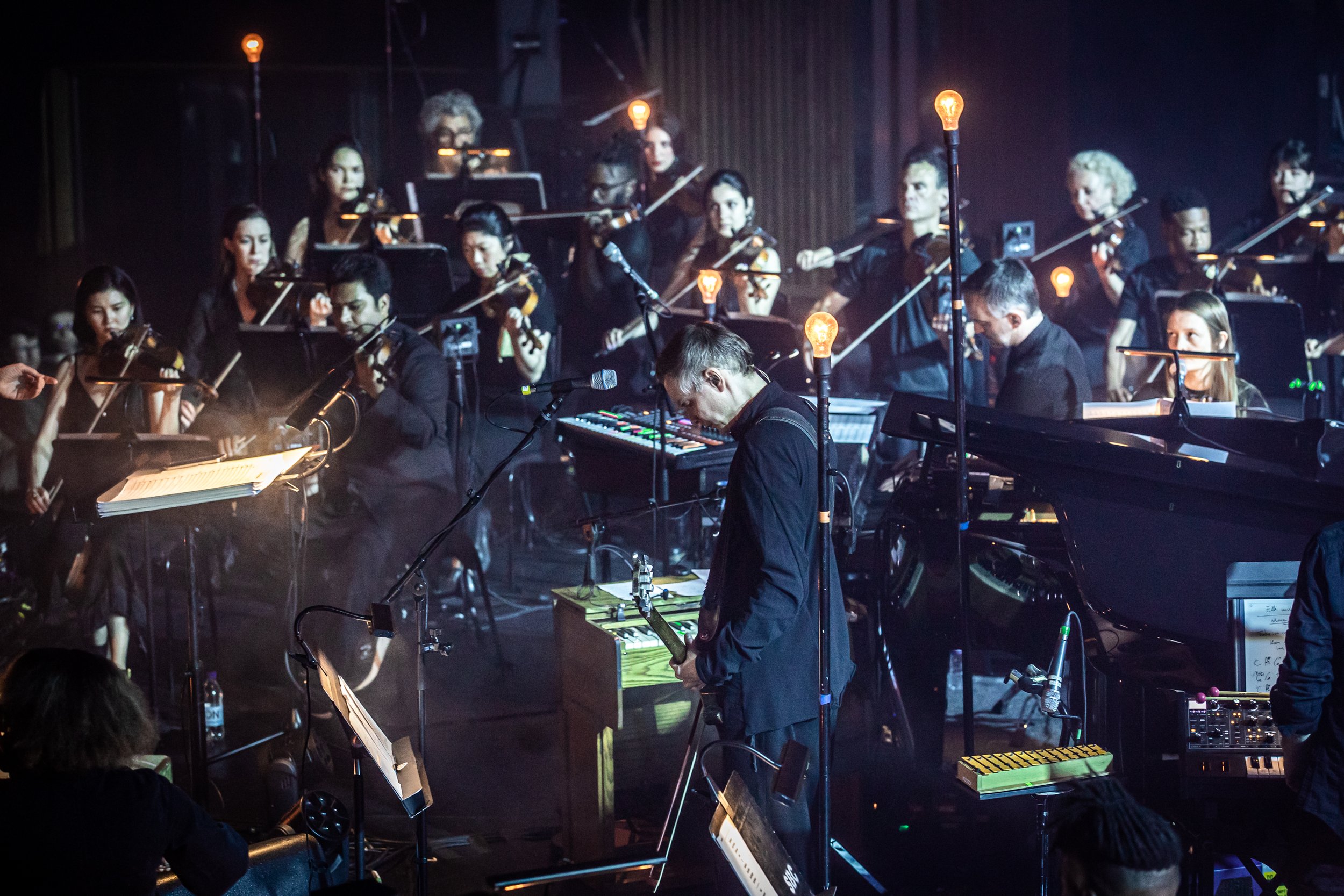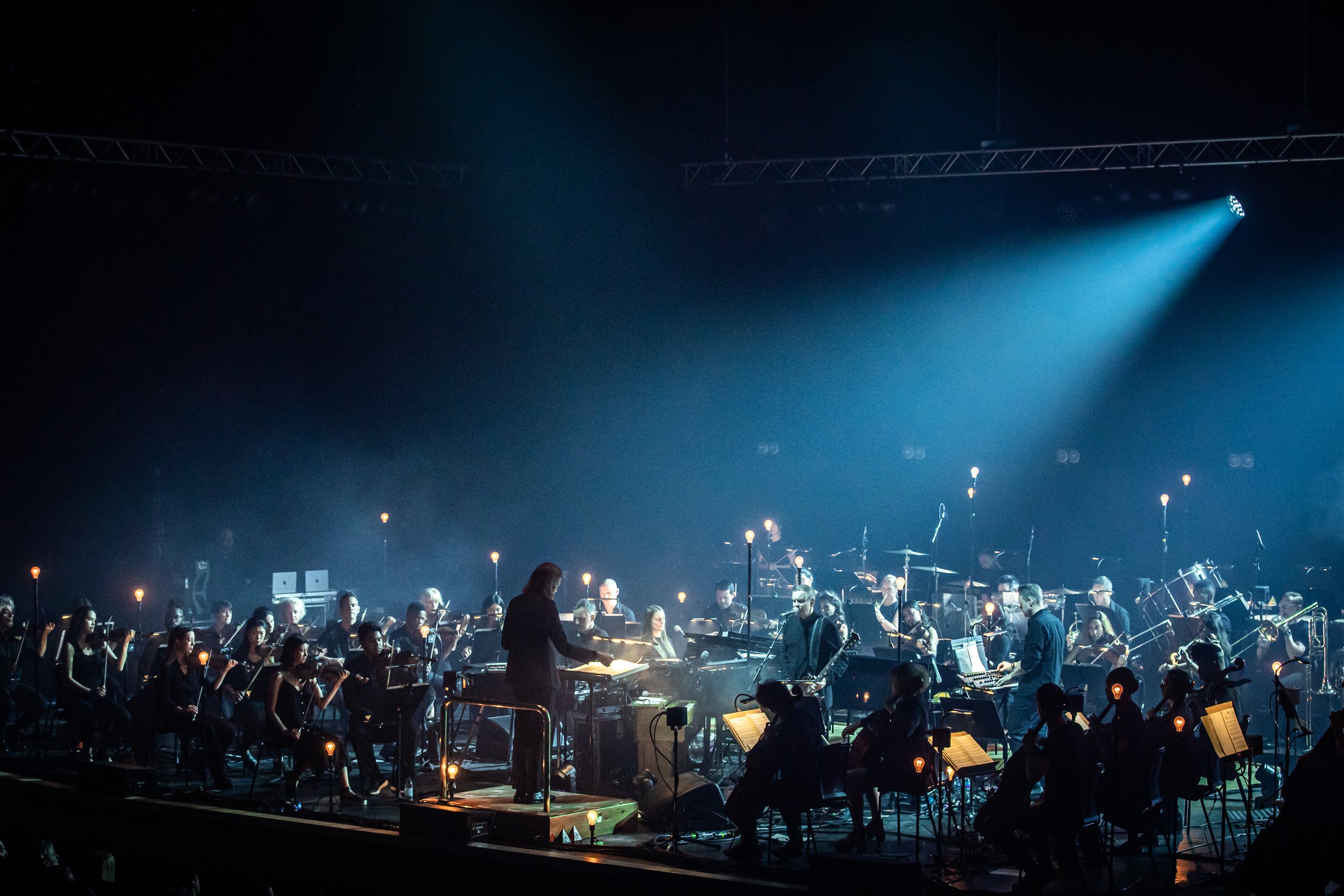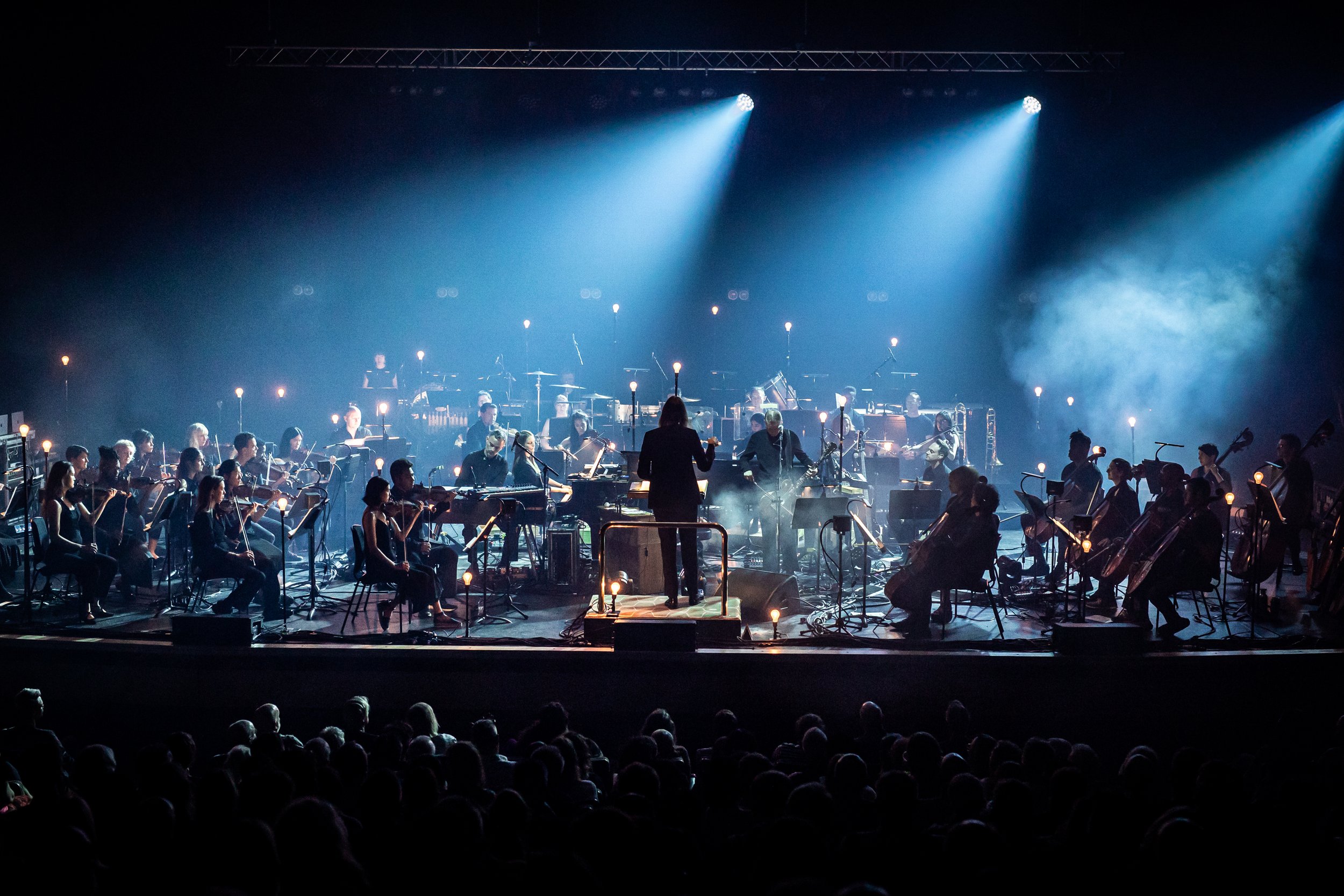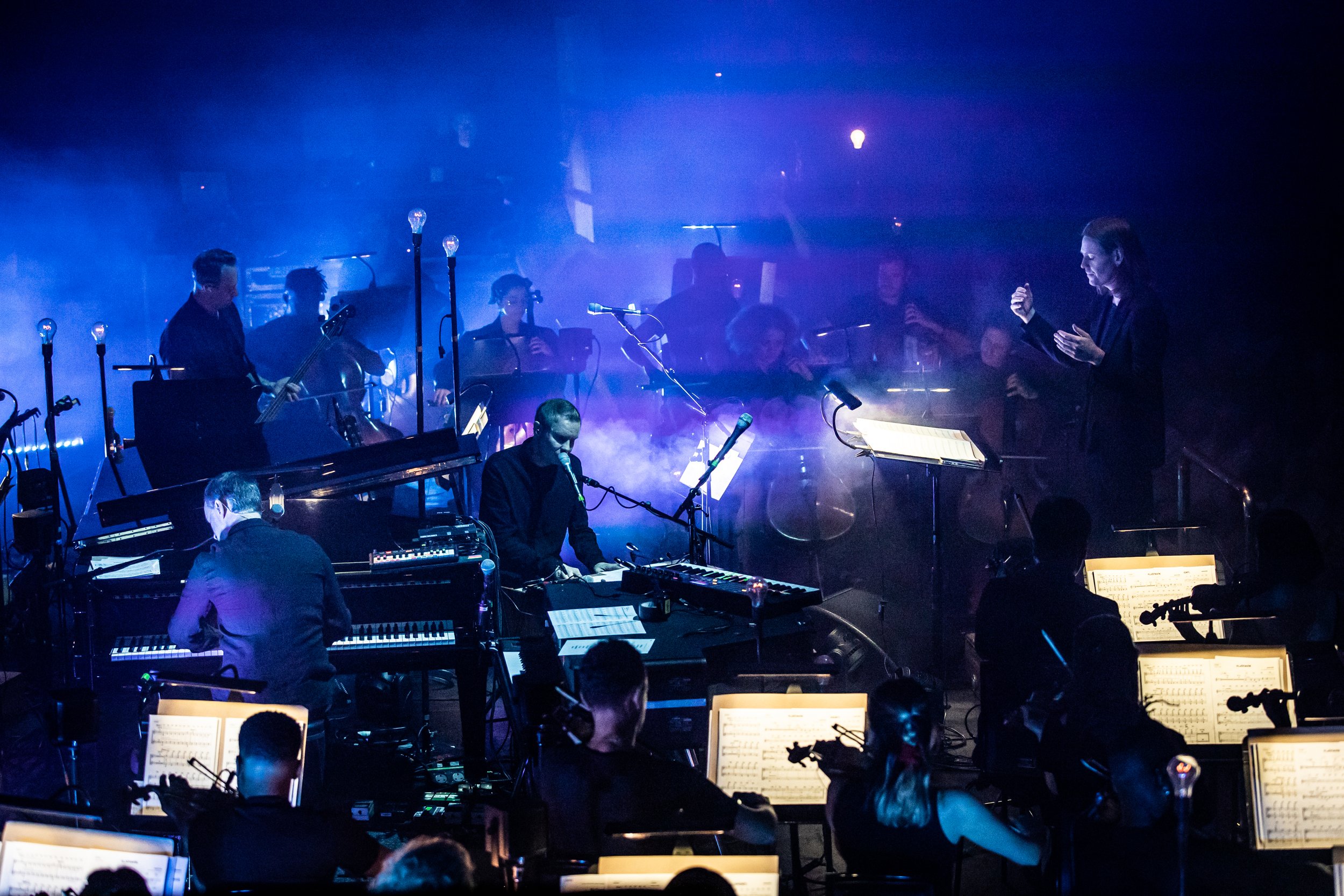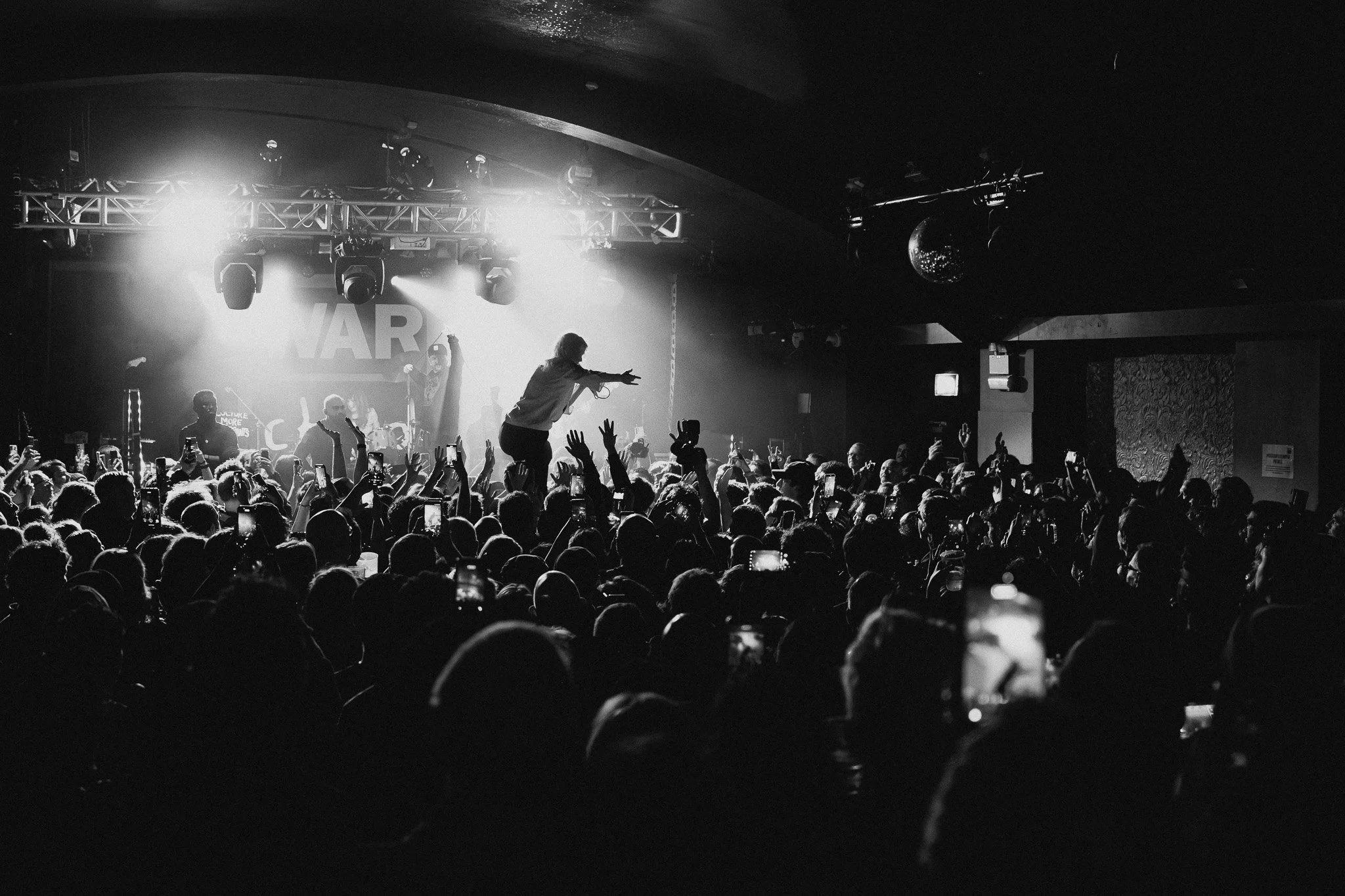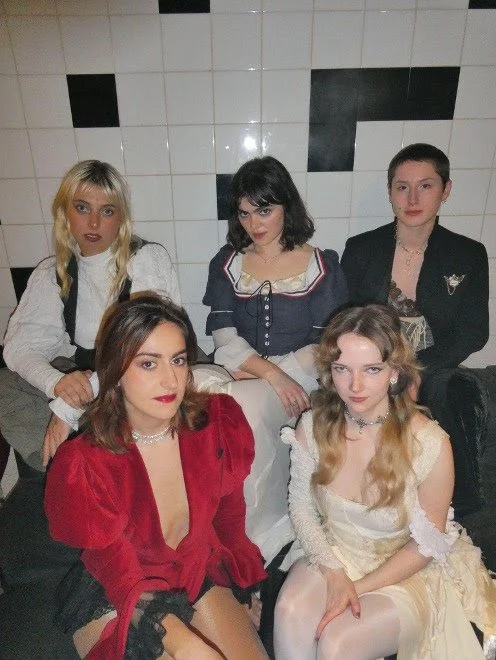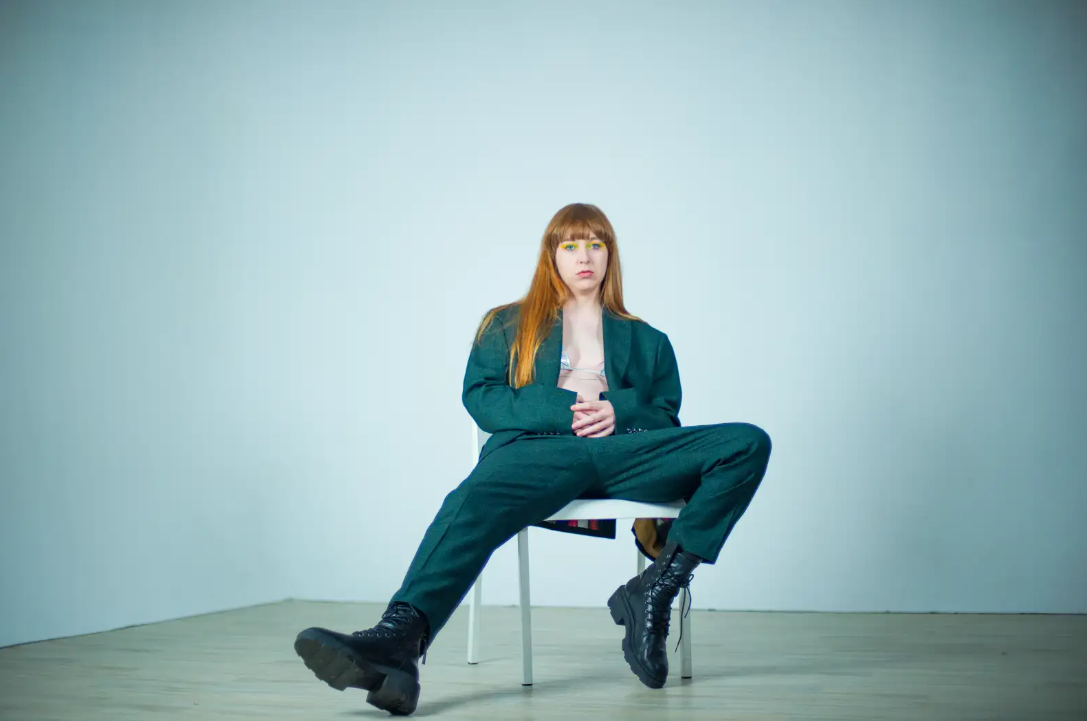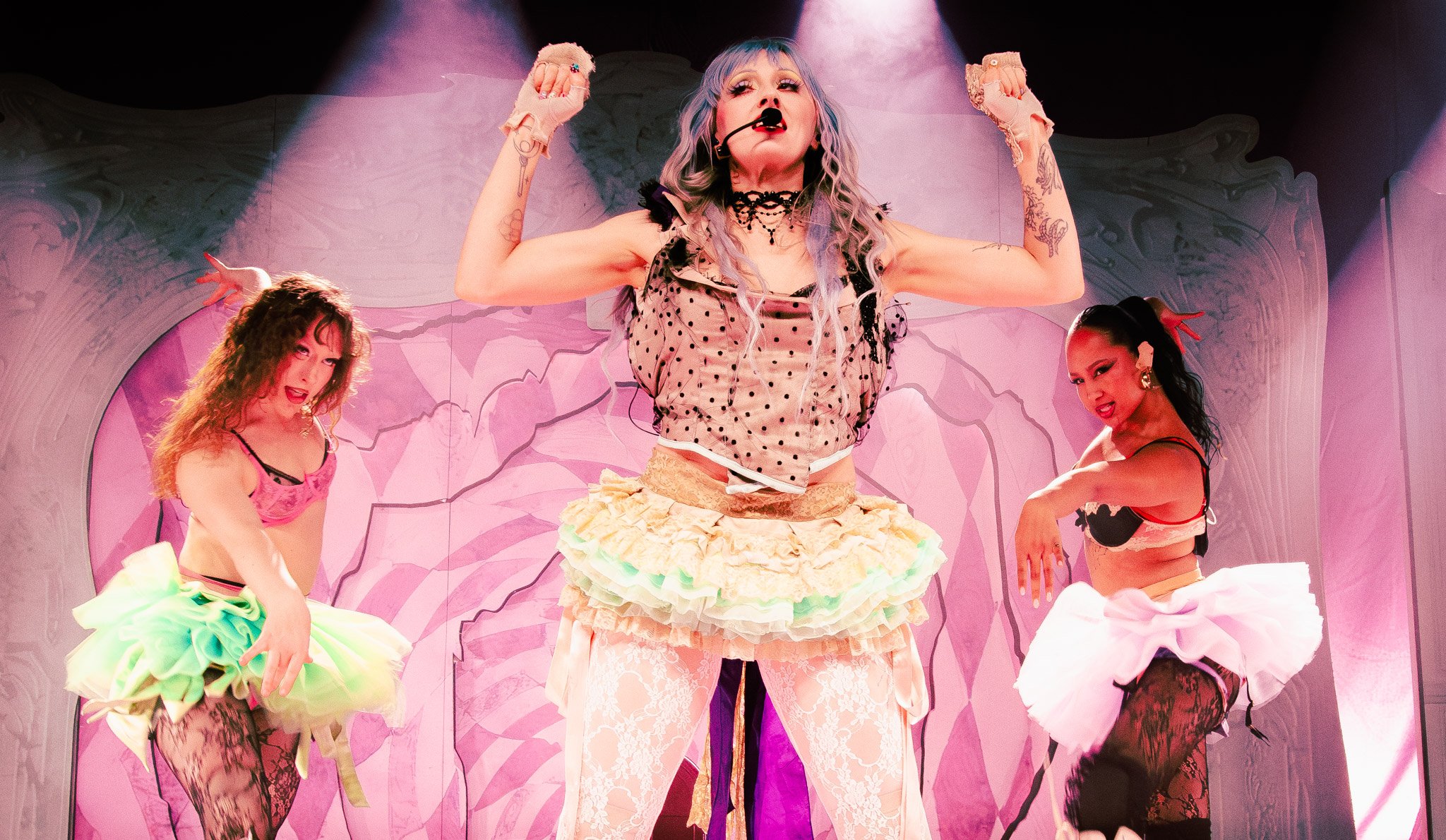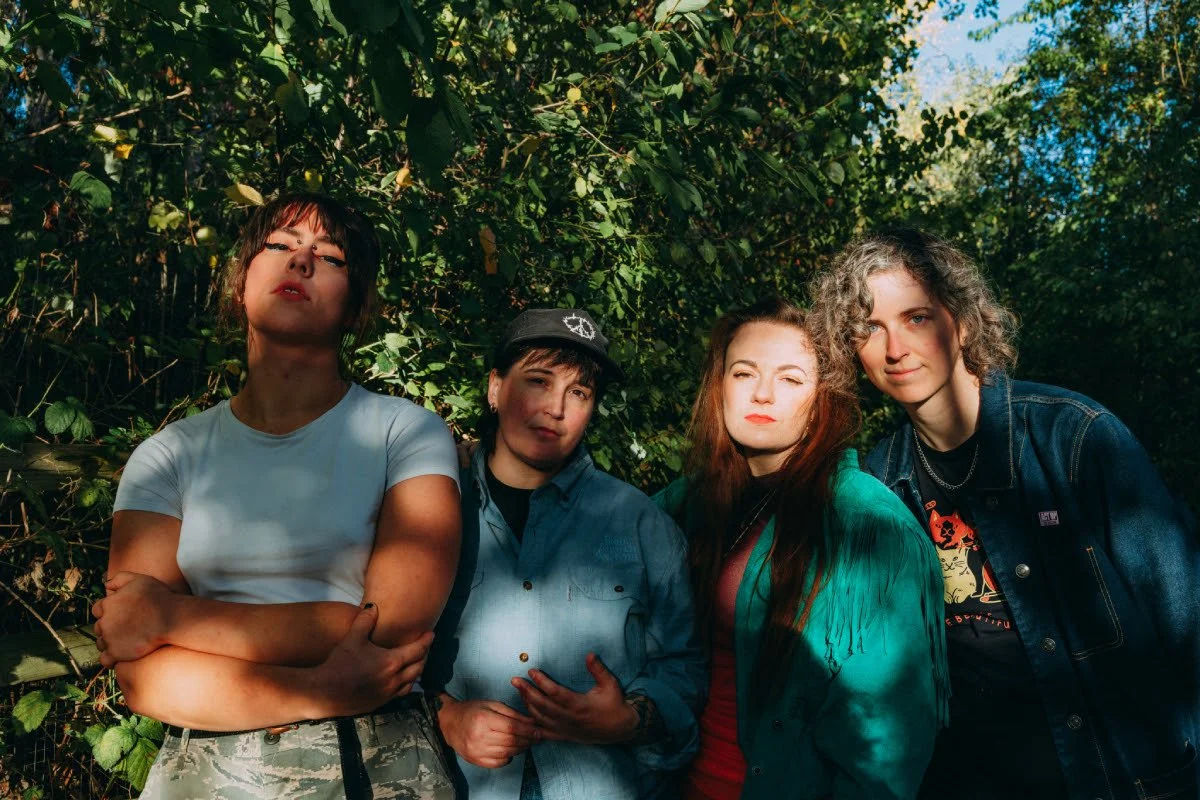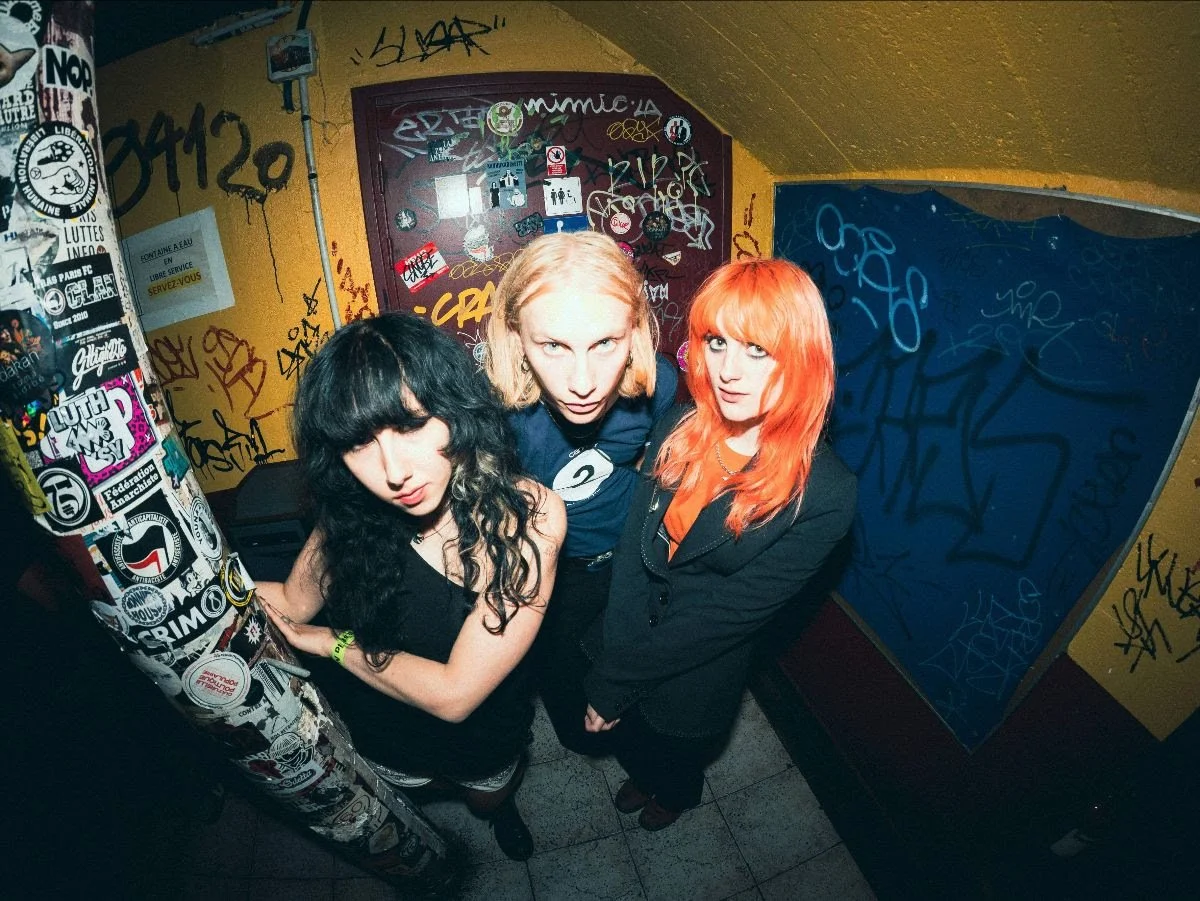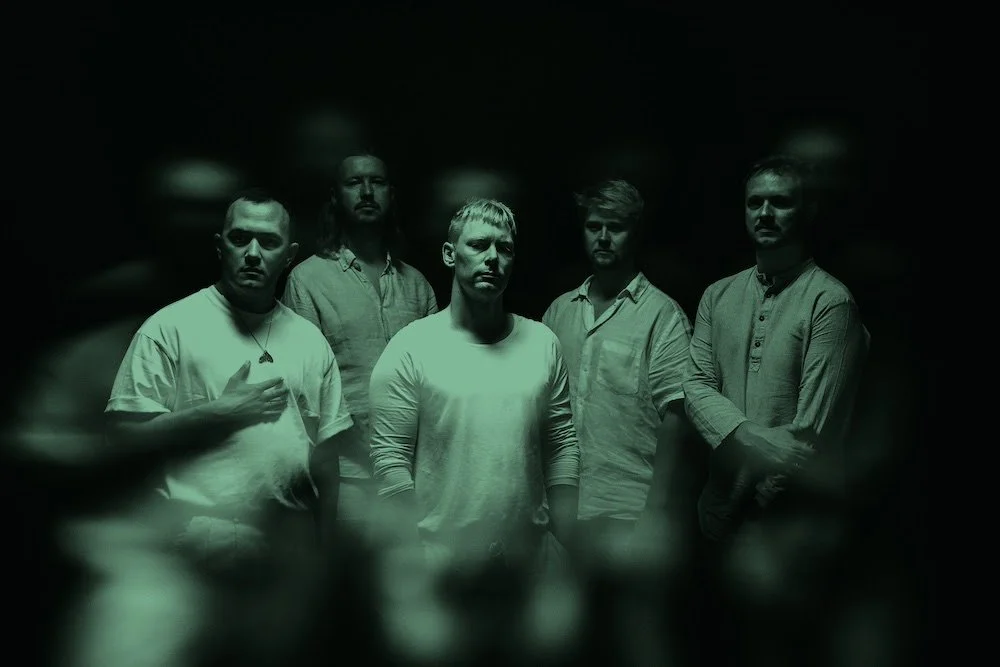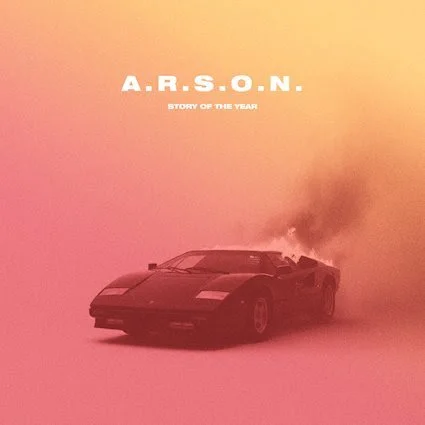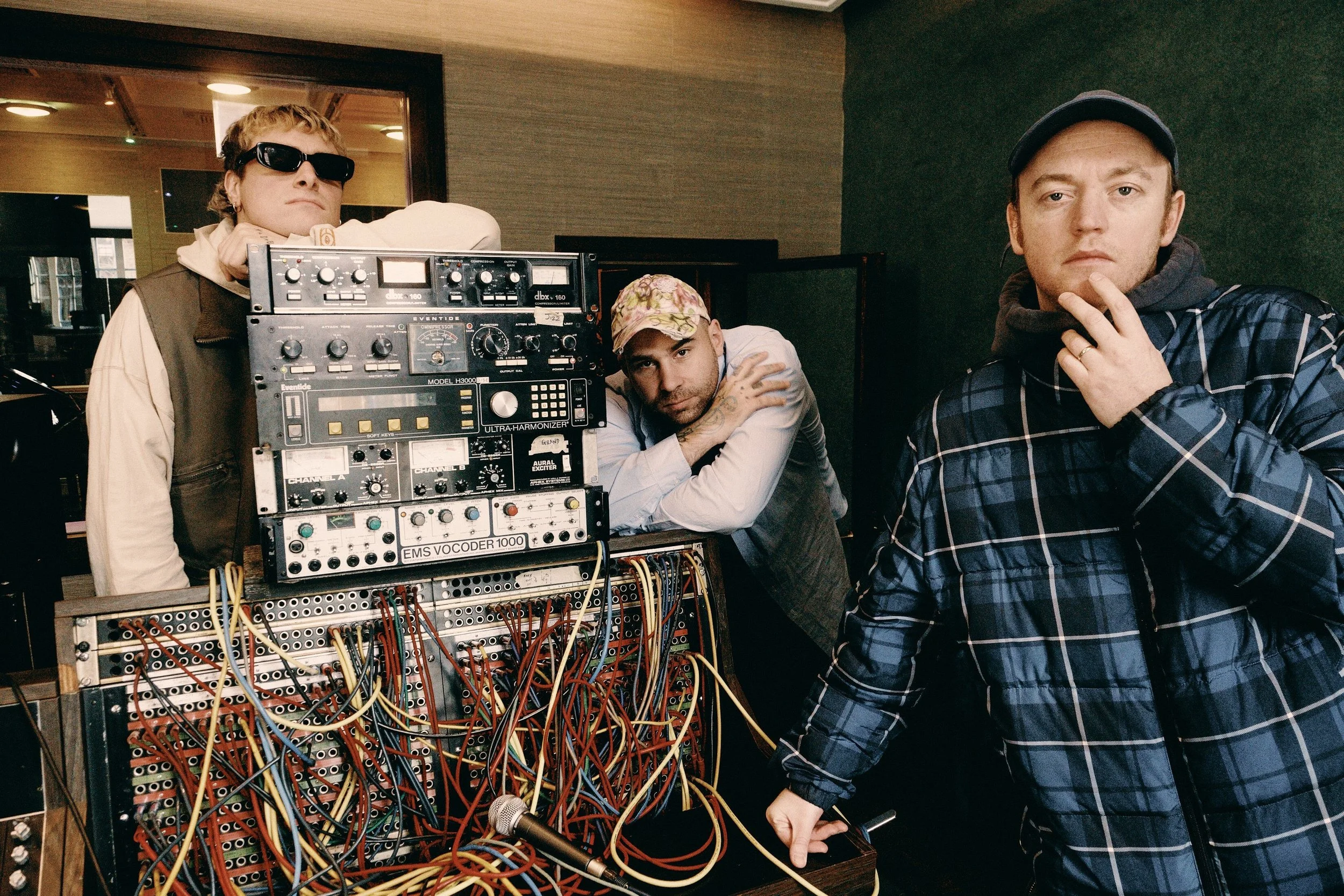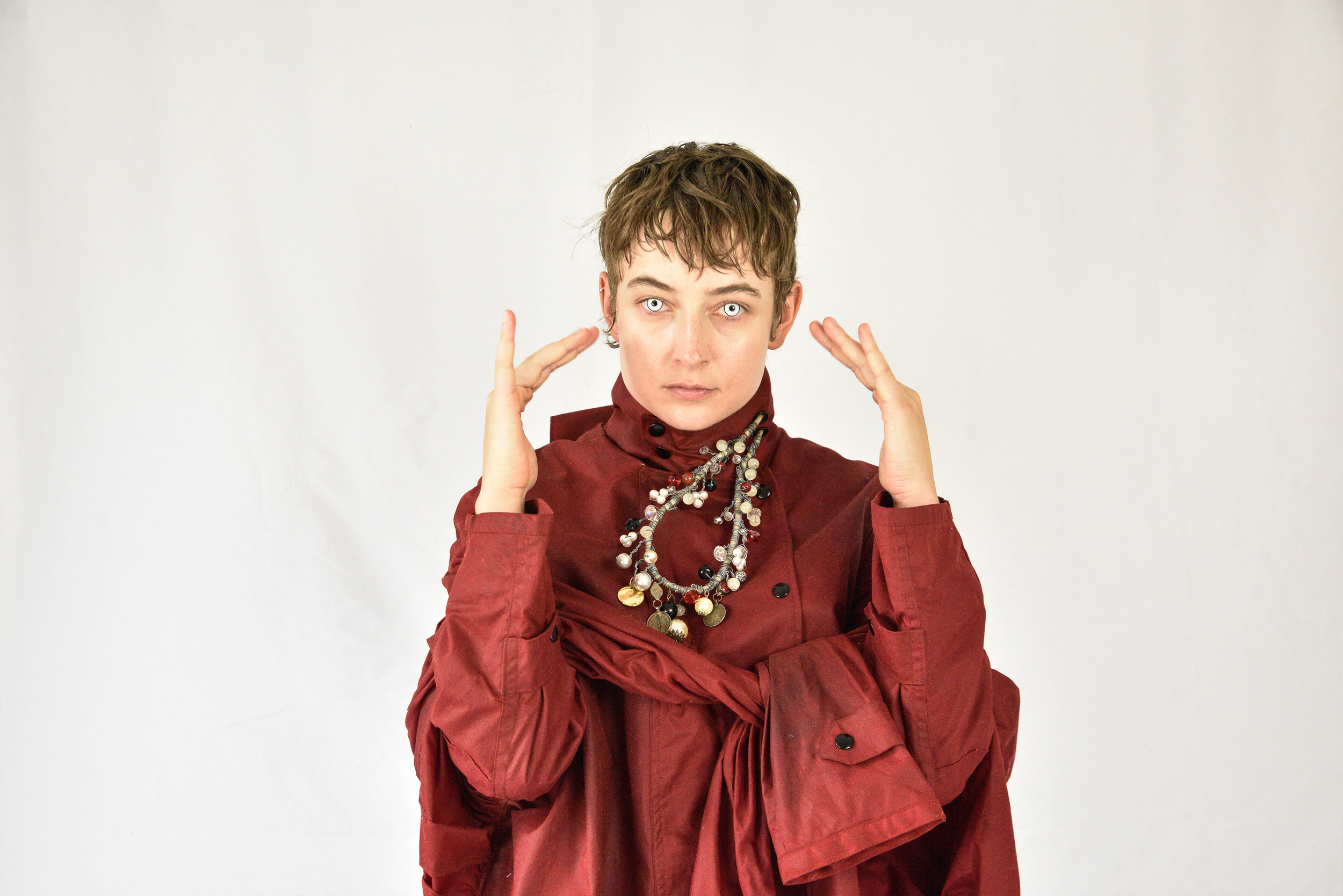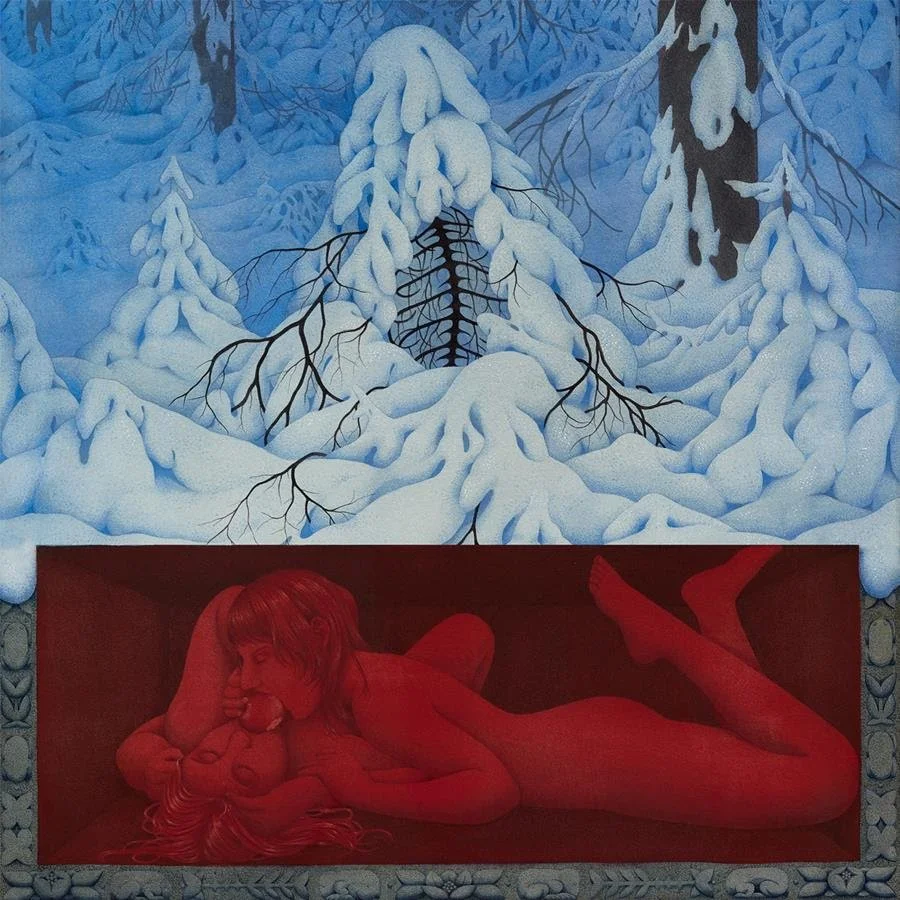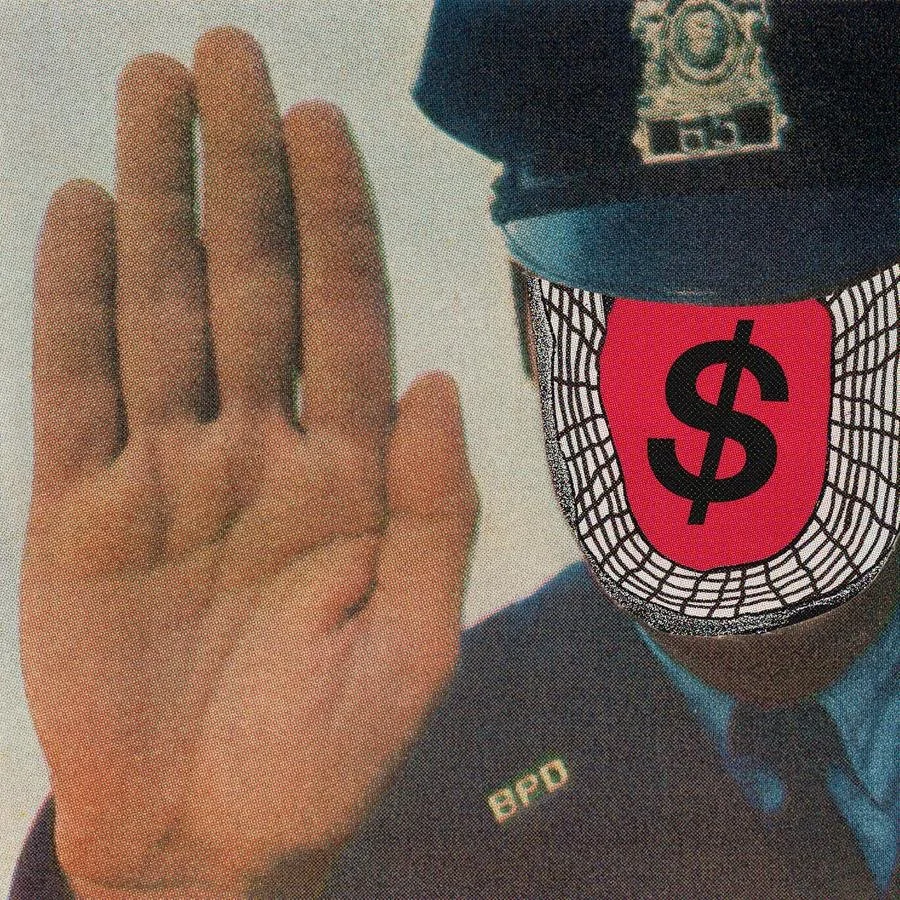Festival Review: Sigur Ros - Meltdown Festival, Southbank Centre - London 16/06/2023
The emotional rollercoaster of Sigur Rós– with the London Contemporary Orchestra – started their global tour in London on Friday.
The Icelandic band craft some delicate and joyous music, a backdrop to a thousand beautiful things. But they can also be awkward, failing to toe a traditional line, eschewing crowd-pleasers in favour of their own line of art. It works – only as the crowd goes in with full heads and hearts.
At midnight, Sigur Ros surprised released ‘ÁTTA’, their first album in 10 years. With the band known for making left-field choices at the best of times, it added to the uncertainty of what the first show of a new tour would entail. A band with no guidelines.
So maybe the most predictable opening was the single ‘Blóðberg’, issued earlier in the week. It’s a statement of band and orchestra intertwined, building and descending into a deeper performance than the studio cut. The stage is bathed in red, before turning black for ‘Ekki múkk’.
The trio - enigmatic frontman Jónsi Birgisson, bassist Georg Hólm and multi-instrumentalist Kjartan Sveinsson, returning after his own 10-year absence – are surrounded on all sides by the orchestra. Conductor Robert Ames in front, brass behind, strings to the left and right. The bulb lighting on stage put an interesting shine on the musicians tasked with bringing the Sigur Rós catalogue alive.
The band choose deeper cuts from their records – ‘Fljótavík’ from ‘Með suð í eyrum við spilum endalaust’, ‘Andvari’ from ‘Takk...’ - instead of some of the more recognised hits, like ‘Sæglópur’ and ‘Ný batterí’. The set-up makes delicate moments - like the sound of glockenspiel – shimmer, but it can escalate into an immersive wave of sound that can carry you anywhere.
Alongside the opener from the new record, there’s the inaugural performance of ‘8’ in the first half. In time, once new material sinks in, it will be appreciated differently. The quirk of release day means the new songs add to the soundscape appeal that makes Sigur Rós captivating.
There’s also a stunning version of ‘Starálfur‘ before the break, which gets the best reception of the first hour. The iconic opening elicits a brief applause and cheers, before a masterclass of what this band does best, Jónsi holding the microphone stand, while the orchestra brings the ‘Ágætis byrjun’ cut alive. The conductor appears to shrug, moments before another musical wave crashes in. To the left, bows are lifted high in unison, glimmering in the bulb light. It’s a glorious sight. When the full weight of the orchestra ends, it’s just a guitar, and Jónsi’s final impeccable vocals. There were several moments in the show; this was one of them.
After ‘Starálfur’ comes brighter lighting, a message of hope, for ‘Dauðalogn’ and ‘Varðeldur’, both from 2012’s album ‘Valtari’. It’s a different kind of intensity from before, but it’s still there, emotional, with the live debut of the latter track driven to its conclusion with a strong instrumental finish under a yellow light. After Jónsi has quietly escaped the stage, it feels like a wordless lullaby.
Maybe it’s the air-conditioned setting of the Royal Festival Hall, or just anywhere that’s not directly in the London sun. It may be just Sigur Rós. Their Icelandic inspirations muting the perils of a bright hot heatwave.
The second half at 9pm began with a mess up to ‘Untitled #1 – Vaka’, but that and fellow ‘( )’ track ‘Untitled #3 – Samskeyti’ were also well received. The sound of Sigur Rós is always some kind of jigsaw, and it's fascinating to watch them build with the extra components of the orchestra.
The audience are patient and respectful. When the stage gets very quiet, the ambient noise gets noticed – a cough here, some heavy breathing there. Then the orchestra will move into full flow, and you’re wondering how they’re not hearing this in north London.
There’s no reason to look away – the musicians move in turn, creating a world that’s a pleasure to explore. The brass elements bring a regal element to proceedings.
There’s back-to-back new songs halfway through the second half. ‘Ylur’ has a light, colourful feel, while ‘Skel’ is more sweeping, from the sound to the conductor. Without knowing the music in advance, it can feel like a jigsaw without corners, but it adds to the experience. Here’s hoping ‘ÁTTA’ is the beginning of a more prolific era for the band.
There’s more songs not played in over 15 years – ‘All Alright’, with beautiful yearning vocals, ‘Sé Lest’ from the hit 2005 album ‘Takk…’ – or even two decades – ‘Untitled #5 – Álafoss’. It all adds to the sonic soundscape of Sigur Rós– an assortment of songs coming alive in a different way. The eschewing of their most played live tracks makes their penultimate track choice a shock.
‘Hoppipolla’ is that song. If there’s a moment in the band’s career that has cut through to the mainstream, it’s these four and a half minutes. Sigur Rós don’t always play it. Some tours bring this wonder to the stage, others don’t. You’re never sure what to expect, and if it was omitted tonight, I wouldn’t have been surprised. Instead, the opening left me spellbound, mouth wide open, until the vocals came in at least. Sigur Rós are not afraid to throw a curveball, but sometimes they pitch just right. There’s no ‘Planet Earth’ visuals, just the chance to watch a band and orchestra combine for one of the 21st-century’s most recognisable sounds. The digital glitches marry with the musicians to create something unparalled, which fills your soul. It’s a switch-up, for sure, but a great move.
It’s the trio’s last song of the night. They leave the stage to the LCO for finale ‘Avalon’, from ‘Ágætis byrjun’. It’s a showcase of the full joy of the orchestra, a magical end to a wonderful night.
At the end, there is a standing ovation. The trio return, Jónsi hollering to the crowd to show their appreciation to the orchestra. Each member deserves their own applause, but it would take longer than the show itself. The soft percussion, the big percussion, the sights and sounds of brass, the joy and hope in the strings, the instruments I’m not versed enough to understand. When Sigur Rós speak of joy or hope in uncertain times, this is what they meant.
Jónsi, Georg and Kjartan link with the conductor Robert Ames for the band’s traditional bow.
Out of the Southbank Centre, it’s straight into the vibrant Friday night life next to the River Thames. It’s another universe from the world of Sigur Rós. Then again, Sigur Rós are another universe when compared with themselves.
The band have said nothing all night. There’s nothing to say, just the music, as part of the Christine & The Queens ‘Meltdown’ series. Sigur Rós have always been tilted – but they’re actually good.
Words by Samuel Draper
Photos by Victor Frankowski

